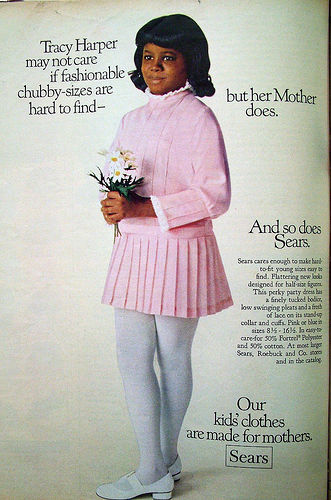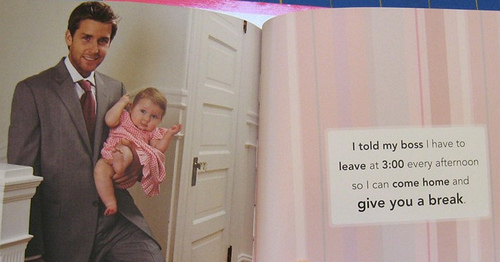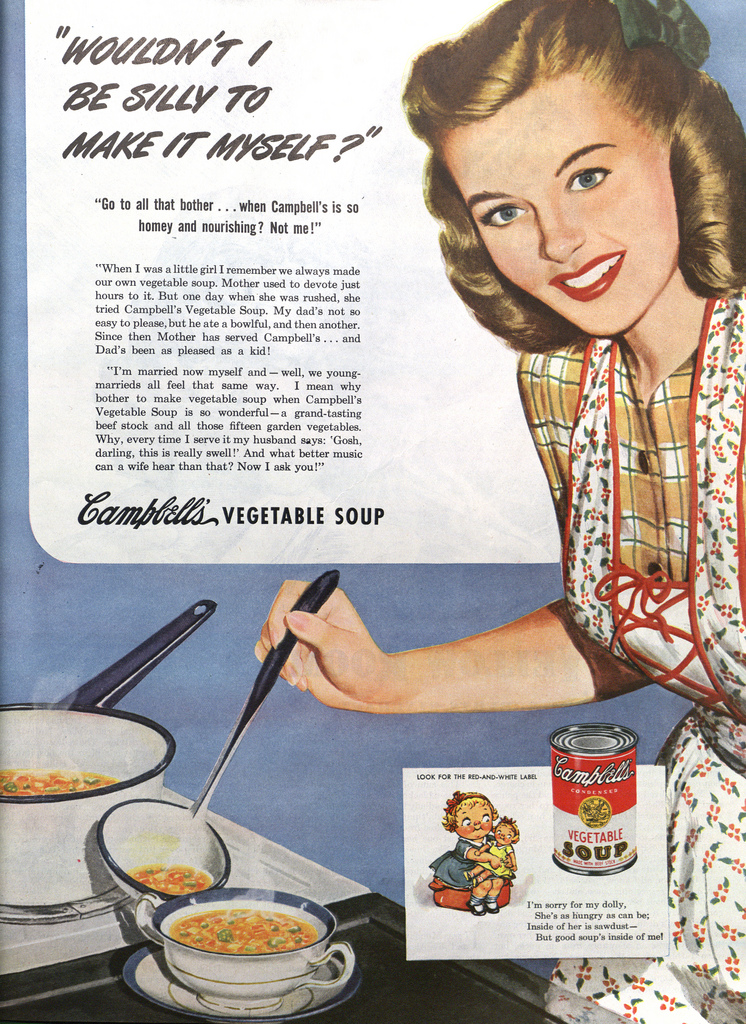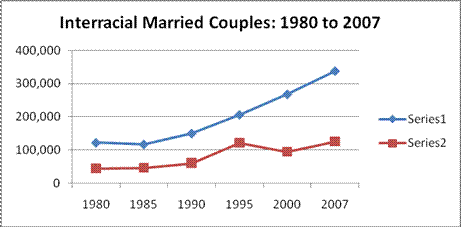Taylor D. sent in a link to a collection of vintage ads that includes this one:
From Vintage Ads:
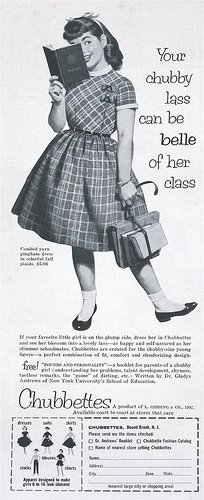
Holly M. sent us this one:
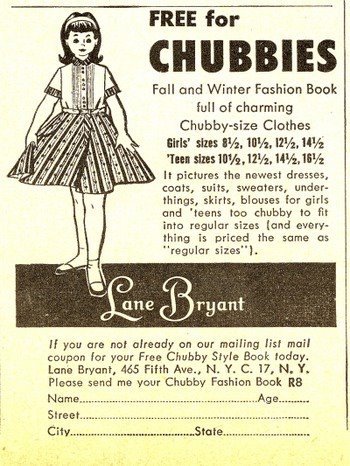
NEW! Larry Harnisch, of The Daily Mirror, sent us this one:

The fact that these girls were considered “chubby” is only slightly more distressing than the fact that polyester blends were considered fashionable.
What do they call sizes for “larger” kids these days? I know they don’t say “chubby,” but I don’t think they use the “plus-size” term for kids–am I wrong? Is there a standard industry term?

